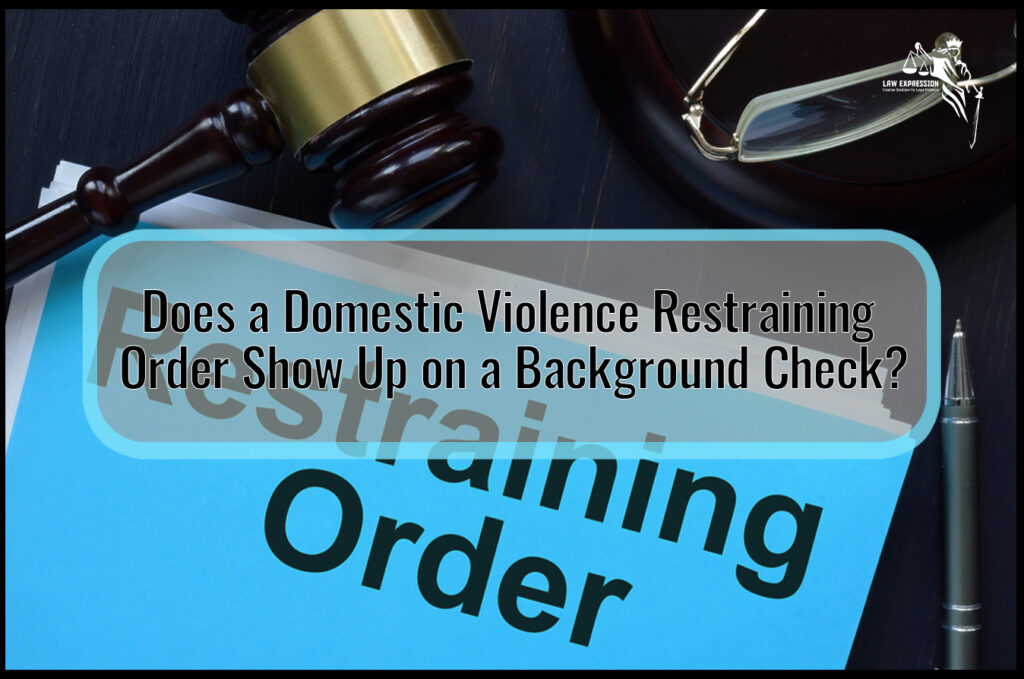Does a Domestic Violence Restraining Order Show Up on a Background Check?
When someone is arrested for domestic violence, the judge may order a restraining order as part of the sentence. This restraining order can show up on a background check and may impact the person’s ability to get a job or housing. The domestic violence restraining order may also show up on a credit report.
If you have been the victim of domestic violence, you may be wondering if a restraining order will show up on a background check. The answer is yes, it can. Having a restraining order against someone can be an important piece of information for employers, landlords, and others who run background checks.
It can help them to make informed decisions about whether or not to do business with someone. If you are concerned about your safety, a restraining order may be a good option for you.

Does a Temporary Restraining Order Show Up on a Background Check in California?
When someone is served with a temporary restraining order (TRO), it is entered into a statewide database called the California Restraining and Protective Order System (CARLOS). CARLOS is maintained by the California Department of Justice. The restrained person’s name, date of birth, and county of residence are entered into CARPOS, as well as the name and contact information of the protected person.
The restrained person’s driver’s license number or another identification number may also be entered into CARLOS. A TRO does not show up on a criminal background check because it is not a criminal matter. However, if you were to do a civil background check on someone who has been served with a TRO, the restraining order would show up.
Are Protective Orders Public Record in Texas?
Yes, protective orders are public records in Texas. The Texas Family Code defines a protective order as “an order issued under this title that is designed to prevent violent or threatening acts or harassment against a person, including an order prohibiting a person from approaching or communicating with another person.” A protective order can be issued by a judge after a hearing, without notice to the other party if the court finds that there is an immediate and present danger of family violence, sexual assault, stalking, or trafficking.
A temporary ex parte (without notice) protective order can last up to 20 days. If the respondent does not attend the full hearings for the protective order, the court may grant a final protective order which lasts up to two years from the date of issuance. If you have been served with a protection order in Texas, it will be entered into a statewide computer database called TxPAD (Texas Protective Order Registry).
Your name and other information about the protection order will be available to law enforcement officers across Texas who have access to TxPAD.
How Long Does a Restraining Order Stay on Your Record in California?
If you have been the victim of domestic violence, sexual assault, stalking, or threats in California, you may be able to get a restraining order. A restraining order is a court order that protects you from someone who has harmed or threatened to harm you. Restraining orders can last up to five years, and they can be renewed if necessary.
Once a restraining order is issued, it will stay on your record permanently.
Are Restraining Orders Public Record in Ma?
In the state of Massachusetts, restraining orders are public records. This means that anyone can access them if they know where to look. The best way to find out if someone has a restraining order against them is to contact the court that issued the order.
You can also search online databases, such as the Massachusetts Trial Court Law Libraries website. If you have a restraining order against someone, it is important to keep in mind that it is a public record. This means that anyone who knows where to look can find out about it.
It is important to be aware of this and take steps to protect your privacy, such as notifying your employer or school about the order.
Conclusion
If you have a restraining order against someone for domestic violence, it will show up on their background check. This is important to know because it can help protect you from them. If they are trying to get a job or rent an apartment, the landlord or employer can see the restraining order and decide not to hire or allow them to live there.



